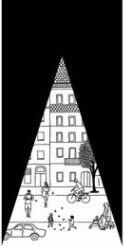Fleming, John
Person Preferred Name
(none provided) (none provided)
Affiliation
Related Works
Content type
Video
Description / Synopsis
A Douglas College forum hosted in partnership with SFU and the City of New Westminster. The goal of these forum is to provide an occasion for frank discussion on important issues facing urban and suburban communities, to both inform and learn from academics, practitioners, and citizens. Sustainable urban planning is meant to create livable, self-sustaining communities. But as New West's population grows and changes, how do we accommodate everyone's needs? Is the notion of fair and just development realistic? Welcome: John Fleming, Dean, Faculty of Humanities and Social Sciences (Douglas College). Moderator: Michael McPhee, Humanities and Social Science (Douglas College). A Geography teacher at Douglas College, he teaches courses related to environmental issues and urban sustainability. He’s a former partner and principal of Quadra Planning Consultants Ltd, a land use and environmental planning consultant firm. He also previously held positions with the Fraser River Estuary Management Program, Environment Canada, and the West Water Research Centre at UBC. Panelists: Dr. Meg Holden, Arts and Social Sciences (SFU). Dr. Holden is a professor of Urban Studies and Geography at SFU and the program director for Urban Studies. She is the 2018-2019 winner of SFU’s President’s Award for Leadership in Sustainability. Her research examines urban policy, planning, and social aspects of sustainable development, intentions, and transitions in cities and communities. Her 2017 book is Pragmatic Suggestions for Sustainable Cities: Acting in the Commonplace. She also works in an advisory capacity with cities. (4:12) Patrick Johnstone, City Councillor (City of New Westminster). Patrick was recently re-elected to his second term on City Council. For many years he has been a volunteer, blogger, and a leader of conversations in New West. As a professional geoscientist, he works in environmental protection and on contaminated sites. As a vocal advocate for more sustainable transportation systems and more sustainable communities, he’s passionate about public engagement. Through his website and social media, he aims to make local government more accessible to the public. (18:14) Q&A with panelists (35:37)
Origin Information
Content type
Video
Description / Synopsis
Part of a series of forums that Douglas College is hosting in partnership with SFU and the City of New Westminster. The goal of these forums is to provide an occasion for frank discussion on important issues facing urban and suburban communities, to both inform and learn from academics, practitioners, and citizens. The origins of public art date back to antiquity, and the value of art in the public sphere has been debated ever since. The same piece can both inspire and draw ire. With so much controversy surrounding public art, it begs the question: does public art enhance our city, or is it a blight on the urban landscape?
Welcome: John Fleming, Dean, Faculty of Humanities and Social Sciences (Douglas College).
Moderator: Dr. Darcy Cutler, Humanities and Social Sciences (Douglas College). Darcy has been a faculty member at Douglas for 15 years and has taught the Philosophy of Art for at least that long. Along with two colleagues, he recently took 25 students to Florence, Italy on one of Douglas College’s International Field Schools where they spent three weeks studying Florentine art and architecture.
Panelists: Mary Trentadue, City Councillor (City of New Westminster). Recently re-elected to the city, she’s currently serving her second term. Mary also serves on several of the City’s Arts Committees, including the Arts Commission, the Arts Council, the Art Strategy Task Force, the Massey Theatre Society Liaison, and the Public Art Advisory Committee. She’s part of many passionate and exciting conversations on this topic. (4:10) Dr. Julian Brooks, Humanities and Social Sciences (Douglas College). A professor in the History department at Douglas College and faculty member at SFU, he has 20 years teaching experience both at secondary and post-secondary levels. He began his teaching career as an English instructor in the Republic of Macedonia and Greece. He recently took a group of students from both SFU and Douglas College on Douglas College’s International Field School to Greece. He will be speaking on history perspectives of public art and the related controversies. (18:23) Q&A with panelists (33:00)
Origin Information
Content type
Video
Description / Synopsis
Part of a series of forums that Douglas College is hosting in partnership with SFU and the City of New Westminster. The goal of these forums is to provide an occasion for frank discussion on important issues facing urban and suburban communities, to both inform and learn from academics, practitioners, and citizens. Should truckers, commuters and residents continue to share the same roads? Is it possible to create an efficient, reliable, equitable and environmentally sustainable transportation system within the City that is part of a regional, national and global system? What solutions are possible? What innovations are on the horizon? Welcome: John Fleming, Dean, Humanities and Social Science (Douglas College). Moderator: Dr. Michael McPhee, Humanities and Social Science (Douglas College). He’s taught at Douglas College for over 20 years and has been a planning and environmental consultant for over 30 years. Mike has worked on planning projects throughout BC, the US, and Asia. He’s held positions with Quadra Planning Consultants, the Fraser River Estuary Management Program, UBC, and Environment Canada. (timestamp) Panelists: Dr. Peter Hall, Faculty of Arts and Social Sciences (SFU). Dr. Hall is a professor and Director of the Graduate Urban Studies program at SFU. His research examines the connections between port cities, seaports, and logistics as well as community, economic, and employment development. His publications include the co-edited books Integrating Sea Ports and Trade Corridors and Cities, Regions, and Flow. (5:40) Lisa Spitale, Chief Administrative Officer (City of New Westminster). Lisa is a registered professional planner with over 30 years of experience. She has been employed with the City of New Westminster for over 25 years and has held senior management positions, including the Director of Development Services and the Director of Strategic Services. Under Lisa’s leadership, New Westminster has realized unprecedented growth and she’s helped spearheaded some of the city’s highest profile projects including the iconic Anvil Centre and the Westminster Pier Park. (23:08) Matthew May, Vice President (BST Transportation Group). Matthew made his way up the ranks in the transportation industry, from dispatching to his current position as VP. He understands the complexity of all the pieces of the transportation supply chain and how they piece together. By developing relationships with multiple large and smaller clients alike, he’s been an integral part of developing for how BC’s most frequented businesses move their goods. Mr. May has been dedicated to the improvement of how the industry is perceived and promoting the importance of safety in the industry. He is the current Board Chair of the Trucking Safety Counsel of British Columbia. (39:50) Peter Xotta, Vice President, Planning and Operations (Vancouver Fraser Port Authority). In his role as Vice President of Planning and Operators, he is responsible for the Vancouver Fraser Port Authority’s long-term planning, operations, security, and trade development activities. Mr. Xotta joined the Port Authority in 1995 and has held diverse portfolios including business development and leading strategic port projects. He’s the former Chair of Canada Place Corporation and currently sits of the Board of Directors of the Van Horn Institute. He has a Master’s of Business Administration from Simon Fraser University and is an active mentor in the program. (53:05) Q&A with panelists (1:08:27)
Origin Information
Content type
Video
Description / Synopsis
The SFU Urban Studies Program joins Douglas College and the City of New Westminster in co-sponsoring two public forums on urban challenges. The fentanyl crisis is new, but the opioid crisis is not. Join a frank discussion of how fentanyl fits within a pattern of opioid crises that goes back to the 1970s; the overlapping issues of homelessness, addiction, mental illness and criminality; how police are responding and the challenges they face; and long-term solutions based on a practical understanding of the larger issues. Welcome: Dr. John Fleming, Dean, Faculty of Humanities and Social Sciences (Douglas College) Moderator: Dr. Regina Casey, Coordinator, Psychosocial Rehabilitation Program (Douglas College). Dr. Casey’s research interests lay in developing a better understanding of the experiences of people who live with mental health issues as well as their families, with a view of promoting and developing recovery-oriented, effective, clinical practices and policy. (3:23) Panelists: Dr. Julian Somers, Faculty of Health Sciences (SFU). A clinical psychologist and associate professor, who directs the Somers Research Institute in the Faculty of Health Sciences at SFU. He’s international recognized for his work in improving individual health and community safety through innovations in public policies, services, and advanced information systems. He’s a lead investigator in the Vancouver at Home Project. Dr. Somers has led the randomized trials, multi-site interventions, and population health level studies described in over one hundred publications. He’s committed to knowledge exchange, community engagement, teaching, and mentorship. Dr. Somers has held leadership positions in professional, academic, and clinical settings for over 20 years and serves as an advisor to senior officials in government and corporate roles. (7:52) Dave Jones, Chief Constable (New Westminster Police Department). Dave began his policing career in 1982 as a volunteer with the New Westminster Police Department. He was hired as a fulltime officer in 1986 and worked his way through the ranks to assume the top position of Chief Constable in 2011. During his career he’s worked in a variety of sections ofthe police service, including Patrol, Major Crimes, Special Operations Unit, Drugs Section, Community Services Section, and Street Crimes Unit. In addition, he’s worked in a variety of joint forces operations including the Drugs Section, the Operational Support Unit, and the Street Crimes unit. Chief Jones has led and participated in numerous major projects, including the Downtown Initiative that helped support people dealing and using crack cocaine in the 1990s. Working with various city departments, he helped to create an integrated service team model that is still in effect today that deals collectively with community and policing issues. Recognizing his dedication in serving and protecting his community, Chief Jones has been presented with a number of awards, including the Queen’s Jubilee Medal and the Queen’s Diamond Jubilee Medal. Last year, Doulgas College named Chief Jones an Honorary Fellow. A Douglas College Criminology grad, Chief Jones holds a Bachelor’s of General Studies and degree of joint Simon Fraser Justice Institute of BC Leadership Development Program. (26:46) Q&A with panelists (42:52)
Origin Information




